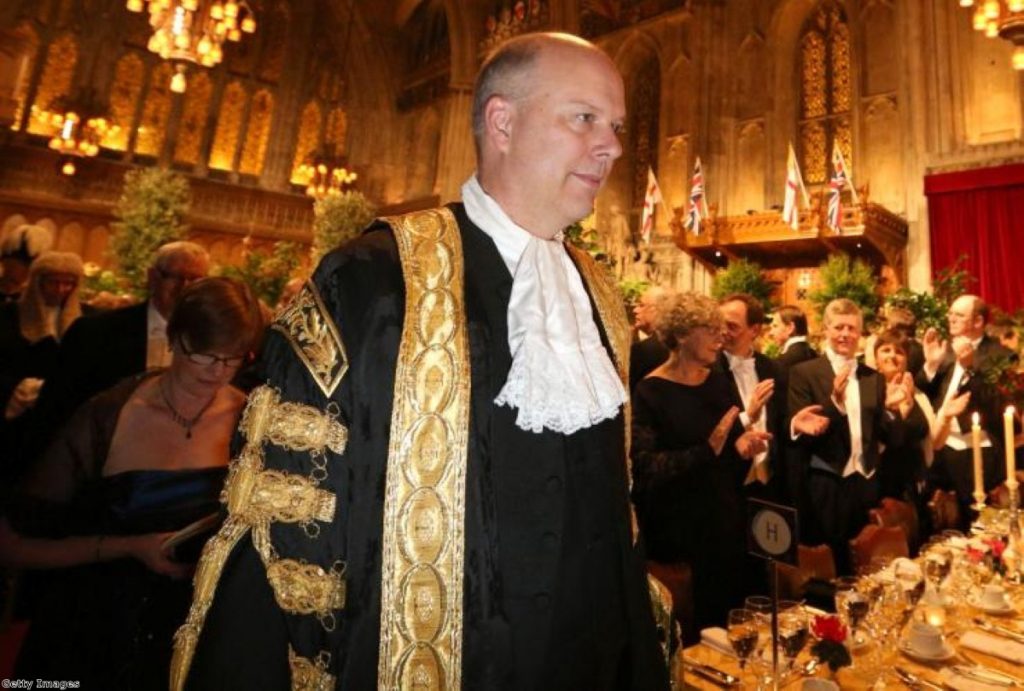There’s still time to defeat Grayling’s war on charities – but MPs must act now
By Angela Patrick and Laura Janes
Three 17-year-old children have died following detention in police stations since 2011. But last year the Home Office agreed to allow children aged 17 to be accompanied by appropriate adults at the police station. It was the right thing to do, legally and morally.
Groups with expertise in the criminal justice system had been calling for better protection for all children at police stations for years. Yet the Home Office would not agree to act.
Government only conceded when the high court said it must. The case was brought on behalf of a child represented by the charity Just for Kids Law. The Howard League for Penal Reform and Coram Children's Legal Centre were granted permission to assist the Court with the bigger legal picture as to why the law required that all 17-year-old children be treated as children at the police station. The court acknowledged that key arguments emerged from the interveners' submissions.


We saw a similar process at the 7/7 inquest, when the government asked the coroner to sit in a 'closed material procedure'. This would have prevented some parties and their legal teams from seeing sensitive material before the coroner, with a security vetted lawyer appointed to act instead. Bereaved families and their lawyers could have been excluded from the inquests, unable to challenge the material placed before the coroner. Justice, Inquest and Liberty were granted permission to intervene to argue in favour of an open, transparent and accessible inquests compatible with the right to life. The high court upheld the coroners' refusal to sit in secret.
These two very different examples illustrate the important constitutional function which judicial review plays in allowing individuals to challenge unlawful action by government and public agencies. The criminal justice and courts bill proposes a host of changes to judicial review designed to ramp up the costs risk of bringing public interest challenges to court, moving ever closer to a system where injustice can only be challenged by those with deep pockets.
One clause threatens the ability of charities and NGOs with expertise to offer assistance to the court as 'interveners'. The government proposes any organisation intervening to assist the court must generally pay all the costs incurred by the other parties in responding to it, except in 'exceptional circumstances', effectively reversing the current practice on costs.
There is no doubt that creating a substantial costs risk for interveners would have a chilling effect. Organisations that intervene do not do so lightly – they already have to bear their own legal costs. This would be a loss to the courts and the strength of our jurisprudence. It is accepted by government that the third sector has expertise to offer: the justice secretary has put substantial parts of the criminal justice system out to tender on this basis. The deputy president of the Supreme Court has described interventions as 'enormously helpful'.
On 27 October 2014, Lords amendments with cross-party support tempered three of the most offensive aspects of the bill, seeking to preserve the discretion of the court to do justice in the public interest in individual cases.
In June 2014, the minister had announced that the government would consider modification of the provisions on interveners. Yet no proposals were produced. On Friday 28 November 2014, one working day before the bill returns to the Commons, new government amendments urged MPs to oppose all the Lords' changes and support an alternative "amendment in lieu" on interveners. This new clause is even more damaging than the original. It would bind the court to order costs against charities, NGOs and other organisations which offer their assistance to the court in public interest litigation in a wide set of ill-defined and broad circumstances that could rarely be predicted at the beginning of a case. It is no concession.
If the Lords amendments are overturned, it is unlikely that charity trustees would feel able to sign a blank cheque for an unpredictable and unquantifiable bill associated with a proposed intervention. In combination with other provisions on financial disclosure and restrictions on legal aid, this bill seems designed to end the role of the third sector in public law litigation. The courts are set to lose the benefit of the expertise of the third sector and the development of our law will be all the poorer for that.
Judicial review is how the courts deal with important questions affecting hospitals, schools, the countryside, transport, policing and national security. It is about good government within the rules set by parliament.
When any government seeks to change the rules of the game, parliament must exercise close scrutiny. These provisions have been rejected as unnecessary by the joint committee on human rights and condemned by the upper house. As the bill begins its final stages in the Commons today, MPs should stand up for the right of us all to hold government to account.
Angela Patrick is director of human rights policy at Justice. Laura Janes is acting legal director at The Howard League for Penal Reform. Justice and The Howard League for Penal Reform join over 35 other charities and NGOs to urge MPs to support the Lords amendments to the criminal justice and courts bill. The full briefing is available, here. Justice has produced a detailed response to the government’s amendment in lieu, here.
The opinions in Politics.co.uk's Comment and Analysis section are those of the author and are no reflection of the views of the website or its owners.












